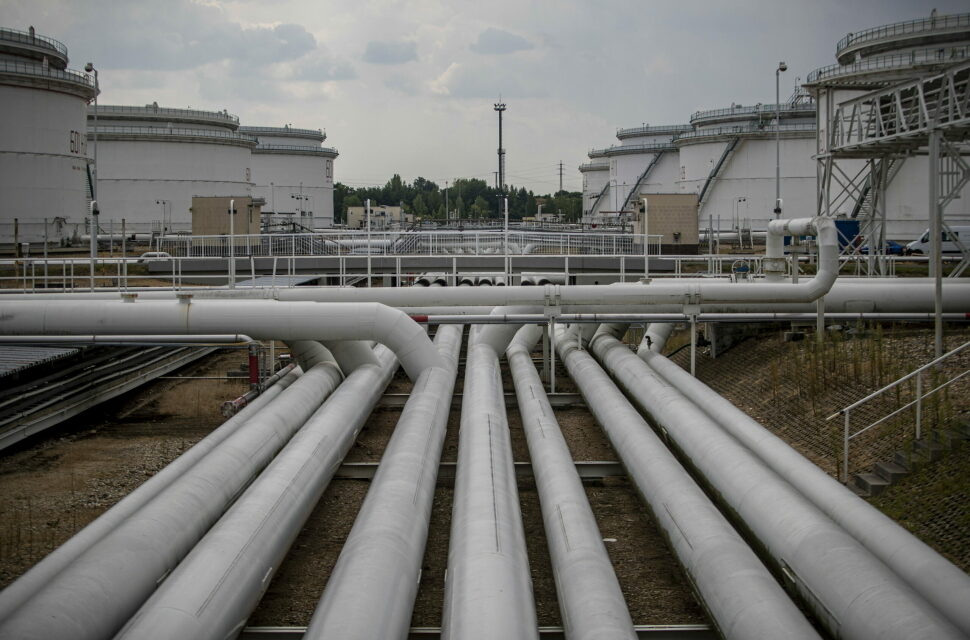A significant amount of Russian hydrocarbons, mainly crude oil, continues to flow to the European market bypassing the sanctions, and middlemen are the ones who benefit the most, say politicians and industry insiders. According to press reports, efforts by EU officials to secure the continent's independence from Russian oil and gas have failed.
Crude oil is notoriously difficult to track on global markets, as it can easily be mixed with other shipments in transit countries, creating a larger batch of oil whose origin is far from easy to determine. In the refining process, almost all traces of the origin of the raw material can be removed. Adding to the mystery is the complex network of shipping companies - some of which are accused of conniving to help Russia hide the origin of its crude exports.
Mikhail Khodorkovsky , the former CEO of the oil and gas giant Yukos, who a serious critic , the embargo only increased transportation costs and put intermediaries in a more favorable position.
„Since the introduction of sanctions, the amount of crude oil exported by Russia has remained more or less stable”
Saad Rahim , the chief economist of Trafigura, a French commodity trading company based in Singapore, has already said this, adding that there is a strong suspicion that Russian oil is still sold to the EU and Western countries through intermediaries .
But how can this be done? One possible route to Europe is through Azerbaijan, which borders Russia, from where the Baku-Tbilisi-Ceyhan pipeline operated by British Petrol (BP), one of the world's largest oil and gas companies, starts. The port of Ceyhan in Turkey is one of the most important supply hubs from where crude oil is shipped to Europe.
Francois Bellamy, a French member of the European Parliament, expressed serious suspicions about the mentioned route. According to his opinion, the data show that Azerbaijan exported 242,000 barrels per day more than it produced between April and July last year. How can a country reduce its production and increase its exports at the same time? ” Bellamy asked.
European Commission spokesman Peter Stano said,
the body is working to eliminate loopholes in sanctions systems and has appointed the former EU ambassador to the US, David O'Sullivan, as a special commissioner tasked with uncovering and tackling sanctions evasion.
The official also pointed out that the data on oil deals in Azerbaijan cited by Bellamy were made before the sanctions came into force, so in this case there is no question of sanctions evasion.
Azeri foreign affairs spokesman Aykhan Hajizada also categorically rejected the assumption.
„Azerbaijan will not export Russian oil to the EU through the Baku-Tbilisi-Ceyhan pipeline”
he declared.
BP was previously forced to deny that it was transporting Russian oil through the pipeline, and data obtained by Politico also shows that the volume of exports to the EU has recently fallen, from three million tons per month measured at the beginning of 2022 (about 700,000 barrels/ day) to two million tons per month this year.
At the same time, Turkey doubled its direct imports of Russian crude last year and rejected sanctions on Russian crude, despite simultaneously providing military and humanitarian aid to Ukraine. A Finnish research institute warned at the end of last year that a new route for Russian crude oil to the EU would go through Turkey, where it would be refined and resold into oil products that are not subject to sanctions.
Ukrainians are confident that Russian oil will reach the old continent. " We have enough evidence that some international companies buy refinery products made from Russian oil and resell them to Europe, " said presidential adviser Oleg Ustenko. He added: “ It is perfectly legal, but immoral. Just because it's allowed doesn't mean we shouldn't do anything about it .”
On Monday, British advocacy group Global Witness published a report showing that Russian pipeline oil, which is not affected by the full embargo, has consistently sold at prices well above the $60 cap imposed by the G7 countries last December. According to one of the activists working on the report, all this did not happen by chance, the governments offered wide loopholes to the big oil companies so that they could continue business as usual.
It is not the first time that Russian crude oil is being diverted, but it is still arriving in large quantities in Europe. Last fall, the British press pointed out that Great Britain was using loopholes to get Russian oil . In February of this year, Bloomberg reported that Russian oil arrives in Western markets in Indian packaging .
the full article in English here .
You can read the entire article hirado-hu
Cover image: Illustration / MTI/EPA/Martin Divisek













